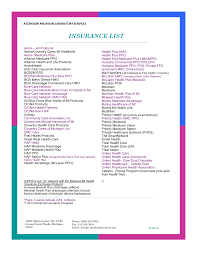
Self-funded insurance is becoming a popular choice for employers looking to regain some control over their employee benefits. Self-funded insurance plans are an excellent alternative for traditional fully insured medical plans. They have many advantages over the more traditional full-coverage health plan.
What is a self-insured health plan?
A self insured health program is an arrangement whereby the employer pays claims to healthcare providers using both its own funds as well as enrollee contributions. These funds are deposited in a special trust fund to pay for incurred claims. To manage the process, the employer usually works with an experienced broker or third party administrator (TPA). This person will help to ensure that the plan's design is appropriate for the employees of the company and their budget.
What is a Self-Funded Insurance Plan (SFIP)?
A self funded insurance plan is a program of medical, dental and eye care benefits where the employer pays for health services with their own money. Smaller businesses can control costs with this option. It can also be used to cover employees' dependents who do not have other options for coverage, such as Medicare or Medicaid.

What is a Self-Funded Health Plan?
A health insurance plan that combines an employee-sponsored self-insured component with a group health insurance contract with an external carrier. It is common for the employer to contract with an outside TPA in order to handle the administration and management of the employee-sponsored self-insured elements, such as enrolling, processing claims, and drafting the network.
Administrative costs for employers are comparable with those of a fully insure plan. Self-funded claims, unlike fully insured claims, are billed monthly and not annually. These monthly costs consist of administrative fees and stop-loss insurance premiums as well as the variable cost for healthcare, otherwise known by the term claims expense.
Shock claims can be a risk to self-funding
As their name implies, these claims can be so catastrophic that they are enough to ruin a self funded plan. These large claims could easily surpass half a million dollars in healthcare costs for an individual over a period of years. Shock claims also can have an impact on an employer's financial situation, because they can drain their reserves and create a negative cashflow.
Understanding Self-Funded Health Insurance
Self-funded health plans are not suitable for everyone. Employers are concerned about the possibility of expensive claims. It is important to weigh up both the pros and cons when choosing a plan.

Self-funded health plans allow employers to select the best benefit package for their employees, while reducing costs and improving employee wellness. The employer can also be more involved with population management strategies such as weight loss or smoking cessation programs. Small and midsized businesses can use this option to lower their health care costs for employees, encourage healthy habits and improve the quality of healthcare for their employees.